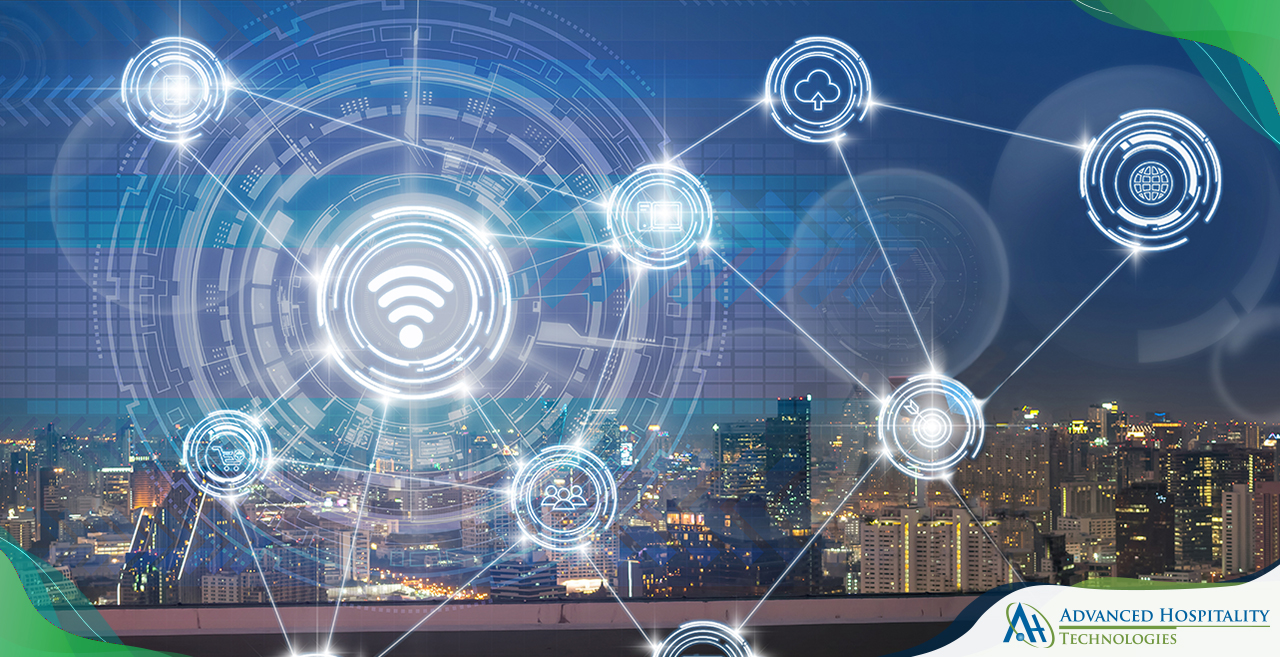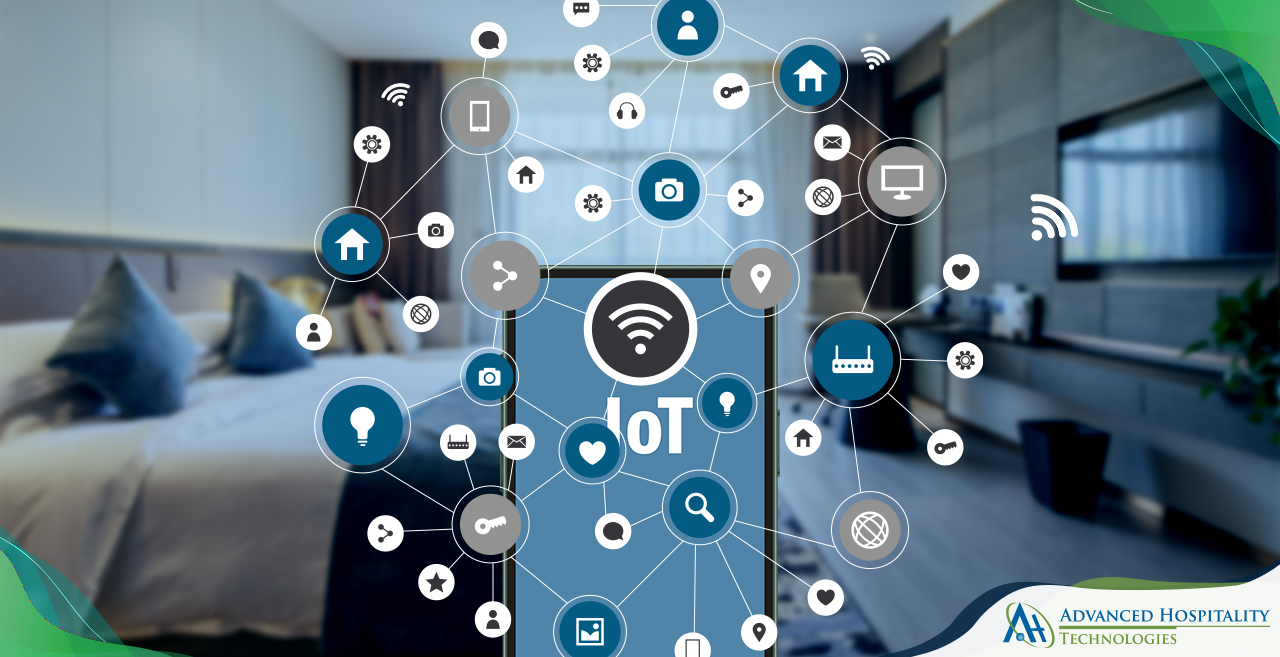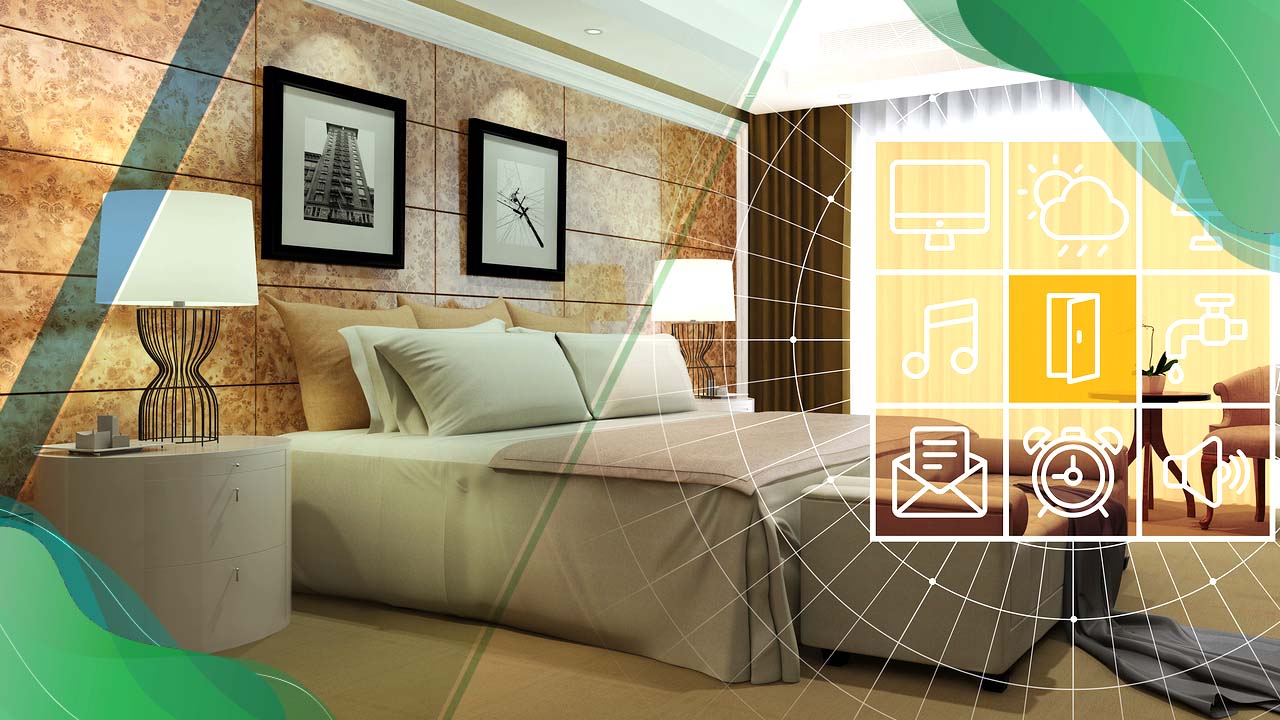The hospitality industry is embracing new smart technology at an incredible pace. Powered by the Internet of Things (IoT) and artificial intelligence (AI), smart hotel rooms are transforming the guest experience and generating new revenue opportunities. By implementing smart room technology, hotels can provide greater convenience, personalized services, and memorable stays for guests.
What is a Smart Hotel Room?
A smart hotel room refers to a hotel guest room that incorporates Internet-connected technology and devices to provide conveniences, efficiencies, and a personalized experience for guests. Smart hotel rooms typically contain intelligent devices and systems like:
– Smart thermostats that allow guests to set customized temperatures and schedules. The thermostats can adjust heating or cooling based on whether guests are present in the room.
– Smart lighting systems with intelligent controls for adjusting brightness and color/tone. Lights can be scheduled to turn on at certain times or respond to guest presence.
– Integrated entertainment systems that allow guests to stream content from their own accounts. These systems can connect wirelessly to guests’ mobile devices for screen casting.
– Voice assistants that allow for controlling room features by voice command. Guests can change lighting, temperature, entertainment and more with simple verbal requests.
– High-speed wireless Internet access covering the entire room, with easy network access for multiple guest devices.
– Mobile app integration that lets guests use their smartphone as a remote for various room controls. The app may also allow chat-based requests to hotel staff.
By incorporating smart technology like this, hotel rooms can offer greater convenience and personalization for each guest. Automated and app-based controls allow guests to customize their room environment to best suit their needs and preferences. Smart rooms aim to provide an enhanced, personalized hotel experience for guests.
Some key benefits of smart room include:
Smart Room Controls
Smart hotel rooms allow guests to easily control room features like lighting, temperature, and entertainment using innovative control systems and mobile apps. These smart controls are designed to maximize guest comfort, convenience, and customization.
With lighting controls, guests can set their preferred ambiance, adjusting both brightness and color temperature. Lights can be scheduled to automatically turn on to gently wake guests up in the morning. Motion sensors also allow lights to activate when guests enter the room and dim when not in use, improving energy efficiency.
The room temperature is similarly adjustable according to each guest’s unique comfort preferences. Smart thermostats allow remote control through mobile apps and even enable automatic adjustments when guest rooms are unoccupied to save energy. Guests enjoy constant comfort without hassling with outdated thermostats.
In-room entertainment has also modernized with smart controls. Guests can stream their own content and control TVs using apps and devices. Voice controls through AI assistants make it easy to search for programs, adjust volume, and more with simple voice commands. Families can also manage individual entertainment in adjoining rooms.
By optimizing lighting, temperature, entertainment and more through smart controls and mobile apps, hotels create a customized, convenient, and connectivity-driven guest experience. The days of inconvenient and confusing room controls are over for savvy hotel guests. Smart controls deliver greater comfort, personalization, and accessibility.
Faster and More Reliable Repairs
The integration of IoT sensors and connected devices in smart hotel rooms allows for faster, more reliable, and proactive repairs and maintenance. Rather than relying on guest reports of malfunctioning equipment, smart systems can automatically detect and diagnose issues through remote monitoring.
This enables hotel staff to fix problems before a guest is ever impacted, ensuring maximum room uptime and availability. It also allows for preventative maintenance based on sensor data – if an AC unit shows increased energy consumption, staff can intervene before it fails. Predictive maintenance reduces overall repair costs and keeps the guest experience running smoothly.
With remote diagnostics, maintenance staff don’t need to visit the room to identify issues. The IoT sensors detect problems and transmit the relevant data. Hotel systems can then pinpoint exactly what needs repair and the right parts and skills required, so technicians arrive prepared. This eliminates back-and-forth trips to diagnose and fix issues. Repairs can often be performed remotely as well through connected devices controlled via hotel IOT networks.
Proactive maintenance and rapid remote repairs mean fewer guest disruptions from equipment downtime or malfunctions. IoT-enabled smart hotel rooms keep repair costs low through prevention and prediction, while maximizing room availability and the guest experience. The technology allows hotels to provide reliable, flawless stays.
Improved Energy Efficiency
Smart hotel rooms utilize technology to optimize energy efficiency in several ways:
Smart thermostats adjust room temperature based on occupancy. Once guests leave the room, the thermostat automatically sets back to an energy-saving level. Upon check-in, it intelligently ramps up to the preferred temperature right before the guest arrives. This ensures guest comfort while avoiding energy waste from heating or cooling vacant rooms.
Smart lighting systems such as occupancy sensors, timers, and automatic dimming adjust light levels based on occupancy and daylight availability. Lights automatically turn off when guests leave the room. Facilities managers can view analytics to identify additional opportunities to optimize lighting schedules and settings across the property.
Advanced analytics on a hotel’s energy usage can identify waste and opportunities for improvement. By leveraging artificial intelligence and machine learning, systems can find efficiencies and recommend changes to capture cost savings.
Improving energy efficiency provides tangible benefits to hotels like lower utility bills and reduced environmental impact. Smart technology allows hotels to optimize energy use while maintaining high guest comfort and satisfaction. With continually improving sensing capabilities and data analytics, hotels can realize greater efficiency gains over time. The ability to dynamically adjust to occupancy patterns provides a clear advantage over legacy static systems.
Enhanced Guest Experience
Smart hotel rooms provide an enhanced experience for guests in a variety of ways. By using data and technology, hotels can create personalized rooms that match guests’ preferences for things like lighting, temperature, entertainment, and more. Guest profiles allow hotels to customize the in-room experience before the guest even arrives.
Smart hotel rooms also offer added convenience through features like keyless entry with mobile apps, virtual assistants available to answer questions or control room features, and automatic adjustment of lighting and temperature based on real-time usage and preferences. These conveniences allow guests to feel immediately at home and have full control of their environment.
The enhanced experience of smart hotel rooms leads directly to benefits for the hotel like higher customer satisfaction scores and increased loyalty. By giving guests more control, personalization, and cutting-edge amenities, hotels see measurable gains in their reputation and repeat business. Satisfied guests are much more likely to choose the same property for future trips. Smart room technology caters to guest needs on a whole new level and keeps hotels on the leading edge, maintaining an advantage over the competition.
The experience itself becomes a central part of the guest’s memory of their stay. Smart rooms create an environment where technology enables greater comfort, relaxation, and satisfaction. Guests equate this experience with the hotel itself, associating the stay with positive feelings that inspire loyalty. For these reasons, enhanced guest experience through smart room technology delivers significant long-term value for hotels.
Increased Revenue Opportunities
Smart hotel rooms provide numerous opportunities for increased revenue through data analytics and upselling room features. By collecting data on guest behaviors and preferences, hotels can gain valuable insights to identify additional revenue opportunities.
Some examples include:
Upselling smart room features and packages – Hotels can offer premium smart room upgrades or bundled packages. For example, a family package could include smart TVs, ambient mood lighting, and kid-friendly voice assistants.
Use data analytics to identify revenue opportunities – Guest data reveals insights like which in-room entertainment options or smart devices are most popular. Hotels can respond by expanding their offerings in high-demand areas.
Higher average daily rates – Smart rooms allow hotels to command higher rates. Travelers will pay more for rooms with high-tech features and a premium guest experience. Smart rooms also boost guest satisfaction, further enabling higher ADRs.
Ancillary revenue – With smart hospitality analytics, hotels can personalize upsell offers for added revenue. If data shows a guest uses streaming media apps nightly, the hotel can offer premium entertainment packages.
By leveraging data and analytics, smart hotel rooms create many avenues for incremental revenue. The enhanced guest experience also builds loyalty and repeat visits over time. With strategic upselling and offers, smart room technology enables hotels to maximize both occupancy and revenue per stay.
Conclusion
Smart hotel rooms provide numerous benefits for both hotel operators and guests. As discussed throughout this article, implementing IoT devices, AI, and smart controls in hotel rooms creates opportunities for improved efficiency, cost savings, sustainability, guest experience, and revenue generation.
Additionally, smart hotel rooms allow hotels to gather data and insights into guest behaviors and preferences, enabling better decision making. As smart technology continues to advance, hotels will be able to leverage innovations like voice assistants, VR experiences, and biometric authentication to further enhance the guest experience.
Looking ahead, smart hotel rooms will become even more integrated, automated, and responsive. AI and deep learning algorithms will allow rooms to continuously optimize based on changing guest patterns. Augmented and virtual reality may also emerge to allow guests to easily customize rooms to their liking.
Hotels that fail to adopt smart rooms risk falling behind those leveraging technology to maximize efficiency, sustainability, and profitability. This is the new reality of the modern traveler’s expectations. For any hotel, now is the time to start implementing smart technology to remain competitive. Those that embrace innovation today will be best positioned for the future of the hospitality industry.

Kazim Raza Ahmed is Research Analyst and Content Strategist at Advanced Hospitality Technologies, A pioneering IT Solutions partner in the hospitality industry. Being a content creator Kazim is dedicated to publishing material keeping pace with the rapid technological developments in the hospitality industry.




